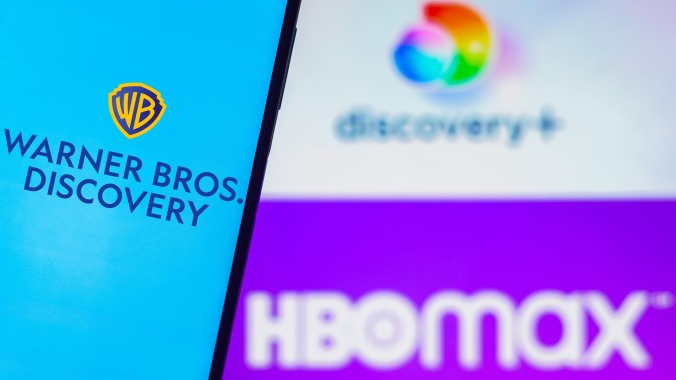Warner Bros. just does not give a crap about its streaming service, huh?
A new report sheds light on HBO Max's indifferent approach to keeping, say, The Lord Of The Rings films as its exclusive property

If there’s one thing that distinguishes Warner Bros. Discovery from its various rivals among the big media conglomerates, it’s got to be how sparse a series of fucks the newly merged company seems to give about the concept of streaming.
We’ve had plenty of examples of this fucklessness already, of course, starting with CEO David Zaslav’s brutal decision to kill off HBO Max-exclusive films like Batgirl and Scoob: Holiday Haunt. But see also a new report from THR, focused in on the company’s approach to the hallowed principle of streaming exclusivity, which many of the big streamers have spent billions assuming will be one of the key issues separating the Peacocks from the Tubis and what-have-you in the coming years. Everybody has to have their own catalog of content that’s theirs, the idea goes, and that doesn’t get shared out to the enemy. HBO Max, though? HBO Max couldn’t give a crap about that stuff; if you want something from its library to license, just name a price.
See, for instance, the company’s recent treatment of its Lord Of The Rings movies, one of the biggest IP troves in WBD’s possession. That didn’t stop Warner from cheerfully licensing out the Peter Jackson films to Amazon Prime Video recently, as part of a promotional push for Lord Of The Rings: Rings Of Power (which, to be clear, operates on a separate set of rights from the films, disconnected from this licensing agreement). Amazon got a nice promo for its show, Warner Bros. Discovery got a big stack of cash; it’s almost like we were back in the world of Netflix circa, like, 2012, when cross-company streaming partnerships were far more common.
Gunnar Wiedenfels, Warner-Discovery’s newly minted CFO, laid out the idea during a recent conference: “We have a ton of content that has been sitting idly for just purely principle reasons,” Wiedenfels said, noting that the Amazon deal was a non-exclusivity window that might have even drawn some viewers back to HBO Max. It’s a surprisingly compelling philosophy, asking, basically, what HBO Max actually gets from keeping a bunch of exclusive content locked away for itself.
Mind you, the company’s transition into this mindset has been extremely ugly—buzz-sawing through already commissioned (or nearly completed) projects, and treating creators who were working for them in good faith like total garbage. There’s no reason, beyond a frenzy for budget cuts, that CEO David Zaslav couldn’t have rolled out this transition more humanely, honoring the work that had already been ordered before walking back levels of exclusive content production. But, nevertheless, there’s something at least novel in seeing a company approach its intellectual property not as a bludgeon it can use to smash its enemies into submission, which has been the norm in streaming since pretty much the moment Disney+ barged onto the scene.
Hell, they might even be getting the DC Comics properties into it; as we previously reported, several animated projects that were originally slated for HBO Max—most notably Bruce Timm’s much-anticipated Batman: Caped Crusader—are being shopped to other streamers. Netflix, Amazon, and Hulu are all biting, and why not? It’s not like HBO Max needs this stuff.